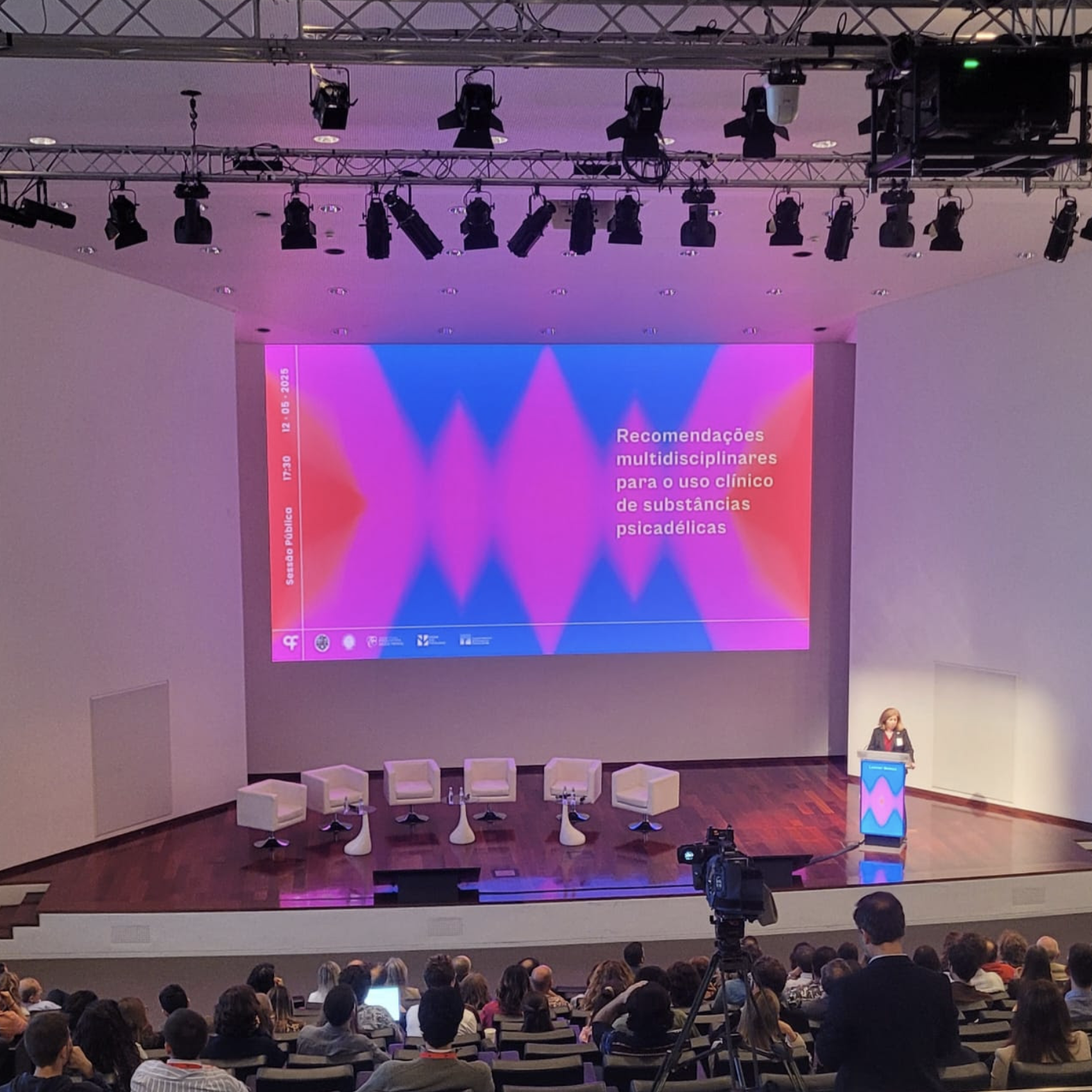It was a happy coincidence: the final text of the Recommendations of the Multidisciplinary and Multiprofessional Working Group on the Clinical Use of Psychedelic Substances was released on the same day that the Portuguese National Health System announced its decision to fully reimburse the treatment of resistant depression with a substance called esketamine.
This was pointed out, during the public presentation of the recommendations, by Albino J. Oliveira-Maia, director of the Neuropsychiatry Unit at the Champalimaud Foundation, in Lisbon, and one of the main drivers behind the now finalised document.
Esketamine is a derivative of ketamine, another psychedelic substance that is currently mainly used as an anaesthetic. In fact, esketamine is, to date, the only psychedelic substance to have been formally approved to treat a mental health condition by the US Food and Drug Administration and the European Medicines Agency.
The document now presented aims to establish clear guidelines for the potential use of other psychedelic substances, such as LSD, psilocybin (a component of hallucinogenic mushrooms), DMT (an ingredient in ayahuasca) or MDMA (ecstasy) to treat not only severe depression but also post-traumatic stress disorder, among others.
Studies and clinical trials conducted with some of these substances have provided promising results. Psilocybin and MDMA are currently being tested in advanced clinical trials, while the study of the potential therapeutic benefits of LSD and ayahuasca is at a much more preliminary stage. These types of substances may also have clinical potential in the treatment of addictive disorders, eating disorders and palliative care.
Nonetheless, all participants in the public session (all of whom were involved in drafting the document) agreed that there still is insufficient scientific evidence on the safety and efficacy of most treatments with psychedelic substances.
Ethical and medical challenges
The working group that drafted the recommendations was an initiative of the Champalimaud Foundation and the Portuguese Society of Psychiatry and Mental Health. It also included representatives from the National Ethics Council for Life Sciences (CNECV) and the Portuguese Medical, Pharmaceutical and Psychological Associations. The document now released took two years to prepare, which is not surprising given the complexity of the ethical and medical challenges raised by the clinical use of psychedelic substances.
“The psychedelic experience induces a qualitative alteration of the state of consciousness”, the document states. “It entails the presence of changes in various domains, namely the sensation and perception of the external environment, the limits of the self, the content of thought (...)”. In particular, psychedelic substances impair patients' decision-making capacity during and after treatment: “(...) sick people become more vulnerable, may be unable to protect their own interests, and potentially expose themselves to abuse (...)”.
Hence the importance of careful consideration of the specificities of informed consent when using psychedelic substances, the effects of which may, moreover, persist after the drug has been administered. Informed consent is therefore one of the main aspects of the recommendations. “Informed consent represents a real challenge due to the nature of the drugs involved and of mental illness”, noted Manuela Silva, President of the College of Psychiatry of the Portuguese Medical Association.
Another aspect highlighted by participants in the public session was that the medical use of these substances must never be confused with their use for recreational or self-medication purposes. “Psychedelic substances are medicines and as such are subject to European Union legislation”, said Hélder Mota Filipe, president of the Portuguese Pharmaceutical Association. “Medicines have rules and their proper use must be protected”. He added a warning: “Fifty per cent of these types of substances sold on websites are counterfeit; people need to be informed about the risks of using these channels.”
Psychotherapeutic follow-up protocols, in parallel with the administration of psychedelic substances, possibly for a longer period of time, was also considered crucial, as was specific training for the health professionals involved.
The document has already been translated into English and is being considered for publication in an international medical journal.
Text by Ana Gerschenfeld, Health&Science Writer of the Champalimaud Foundation.

